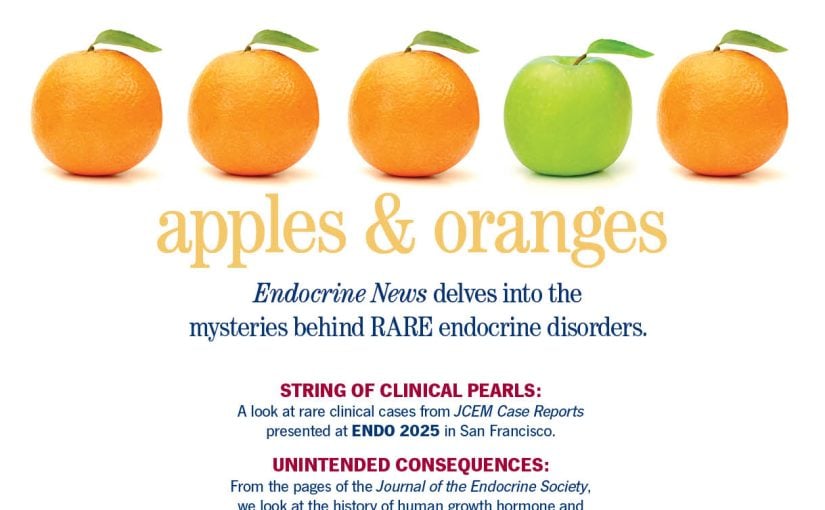Share
Endocrine-disrupting chemicals (EDCs) in plastics may contribute to diabetes risk in women, according to a new study published in the Endocrine Society’s Journal of Clinical Endocrinology & Metabolism. Phthalates are chemicals widely used in plastics such as personal care products, children’s toys, and food and beverage packaging. Phthalate exposure is associated with reduced fertility, diabetes and other endocrine disorders....
Share
The growing incidence of a potentially cancer-causing liver disease in children is associated with prenatal exposure to several endocrine-disrupting chemicals, Mount Sinai researchers report. It is the first comprehensive study on the association of prenatal exposure and mixtures of these chemicals and non-alcoholic fatty liver disease. The researchers used cytokeratin-18 as a novel marker for...
Share
On June 15, the U.S. Environmental Protection Agency (EPA) issued drinking water health advisories for four per- and polyfluoroalkyl substances (PFAS) including PFOS, PFOA, GenX, and PFBS and incorporated Endocrine Society recommendations on low dose impact by acknowledging that there is no safe level for certain PFAS and health effects may occur below the current...
Share
Per- and polyfluoroalkyl substances (PFAS) and phthalates (two types of endocrine-disrupting chemicals) may be associated with lower bone mineral density in male teens, according to a new study published in the Endocrine Society’s Journal of Clinical Endocrinology and Metabolism. Endocrine-disrupting chemicals are chemicals or mixtures of chemicals that interfere with the way the body’s hormones work. Per- and...
Share
The Endocrine Society joined a coalition of physicians, scientists, and public health and environmental organizations to send a formal petition to the Food and Drug Administration (FDA), calling on the agency to rescind its approvals for bisphenol A (BPA) in adhesives and coatings and set strict limits on its use in plastics that contact food....
Share
As the European Commission makes progress towards implementation of the Chemicals Strategy for Sustainability (CSS), the Endocrine Society continues to provide input to ensure that the strategy modernizes the European Union’s approach to identification and regulation of endocrine-disrupting chemicals (EDCs). Our members are providing feedback in several different ways, including as a member of the...
Share
On September 21, the United Nations (UN) Special Rapporteur on toxics and human rights, Dr. Marcos A. Orellana, presented a thematic report to the UN Human Rights Council on the right to science in the context of toxic substances. The report studies how the human right to benefit from scientific knowledge relates to emerging knowledge...
Share
Women with higher levels of PFAS in their system may be 20% more likely to stop breastfeeding early, according to a new study published in the Endocrine Society’s Journal of Clinical Endocrinology & Metabolism. Per- and polyfluoroalkyl substances (PFAS) are manmade chemicals used as oil and water repellents and coatings for common products including cookware, carpets and...
Endocrine Disruptors: Research And Articles
Endocrine disrupting chemicals are a serious risk to the modern individual. Found in everything from food to household decor, these chemicals cause serious problems with hormone production and hormone balance, and as such cause health problems when consumed in large quantities.
Doctors and patients alike need to understand the latest research and resources surrounding endocrine disruptors so they can properly decide treatment and prevention methods to protect endocrine health. Endocrine News has compiled the most resent reports, research and articles on this topic on this page for your convenience.
Articles on Endocrine Disruptors
On this page, you will find a number of articles on endocrine disruptors from trustworthy sources in the endocrinology field. As a doctor, you can use these articles to provide important information to your patients to help them better protect their hormone health. You can also access these articles to update your understanding and knowledge of endocrine disrupting chemicals as you seek to provide your patients with the best possible care and advice.
In addition to helping doctors, these articles help patients. Patients can access these articles to study endocrine disruptors for themselves; learn more about health concerns, like reproductive disorders and obesity, which are linked to these chemicals; and learn about how to avoid the chemicals in day-to-day life.
Recent Research into Endocrine Disrupting Chemicals
In addition to informational articles, this page has a collection of research and studies into endocrine disruptors, their effects and steps one can take to avoid them. These research studies are pioneering knowledge and a better understanding of the full impact of these dangerous chemicals.
Expert Opinions on Endocrine Disrupting Chemicals
Finally, the Endocrine Disruptors page on Endocrine News features expert opinions from leading doctors and endocrinology research groups on the subject of endocrine disruptors. By visiting this page regularly, doctors can remain well informed about new opinions on this important topic.

